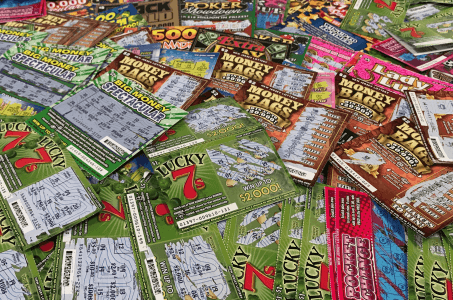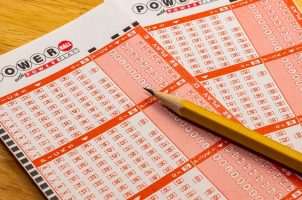UK Lottery Operator Camelot Blasted Over ‘Underage’ Gambling Loophole
Posted on: July 21, 2020, 10:46h.
Last updated on: July 21, 2020, 12:28h.
A group of lawmakers in the UK has written to the government asking it to close a loophole that allows 16-year-olds and older teens to gamble on scratch-off cards and online instant win games.

This age group spent £47 million ($60 million) on National Lottery games in 2017-18. All other forms of gambling in the country are illegal for under 18-year-olds to play, according to The Times newspaper.
This must change “as a matter of urgency,” said Labour MP Carolyn Harris, who chairs a cross-party committee studying gambling-related harm. She believes the current regulations do not reflect the reality of modern lottery products.
The loophole was created when the National Lottery was established in 1994, at a time when the format was simple: pay £1 to pick six numbers and wait for the weekly draw.
Rules for the Digital Age
But today, lottery operator Camelot is competing with online gaming companies and has had to adapt its games into a potentially more addictive digital format. In 2019, it sold almost £3.4 billion ($4.3 billion) in Scratchcards and instant-win games, representing 43 percent of all sales. That’s up from 24 percent a decade ago.
The lottery is clearly competing with mainstream gambling companies. But they have the advantage of being able to target children aged 16 and 17 — some of whom can spend up to £350 ($446) per week on games. We must ensure that this loophole is closed quickly,” Harris tweeted this week.
In response to the outcry, the government told The Times it is committed to protecting young people from gambling-related harm and is currently planning to review the Gambling Act to update for the modern era.
“We are currently considering our response to the minimum age consultation and will respond in due course,” a government spokesperson said.
Contract Up
Camelot has operated the lottery since its inception in 1994. But the contract is up for renewal this year.
Since 2010, the company has been owned by the Ontario Teachers’ Pension Plan, and there is a perception among its critics that its foreign ownership renders it inefficient. There has been criticism of a lack of transparency about how some of the revenue is channeled into good causes, and about the salaries enjoyed by its top executives.
In May, Virgin billionaire Richard Branson announced he would be withdrawing his bid to operate the lottery, as he focused instead on fighting to save his pandemic-hit airline, Virgin Atlantic.
Branson has long been interested in taking control of the National Lottery, and advocates for a “people’s lottery” — a model with a non-profit structure.
Related News Articles
Lottery Industry Stakes Claim to US Sports Betting Market
Nebraska Lottery Won’t Pay Out on 405 Misprinted Scratch-Off Tickets
Kentucky Lottery Winner Gives Out $2K Gift Cards to Strangers
Lottery.com Slides Further Into Abyss as 10-Q Filing Delayed
Most Popular
Las Vegas Overstated F1 Race’s Vegas Impact — Report
Vegas Strip Clubs Wrestle in Court Over Animal Names
Mega Millions Reportedly Mulling Substantial Ticket Price Increase
Las Vegas Strip Stabbing Near The Strat Leaves One Man Dead
Most Commented
-
End of the Line for Las Vegas Monorail
— April 5, 2024 — 90 Comments -
Mega Millions Reportedly Mulling Substantial Ticket Price Increase
— April 16, 2024 — 6 Comments -
Long Island Casino Opponents Love New York Licensing Delays
— March 27, 2024 — 5 Comments -
Sinclair Broadcast Group Selling 7.91 Million Bally’s Shares
— April 12, 2024 — 4 Comments
















Last Comment ( 1 )
According to the internet. As of 2010, Camelot has been owned by Ontario Teachers' Pension Plan from Canada who bought it for £389m. Does that put Camelot in the clear